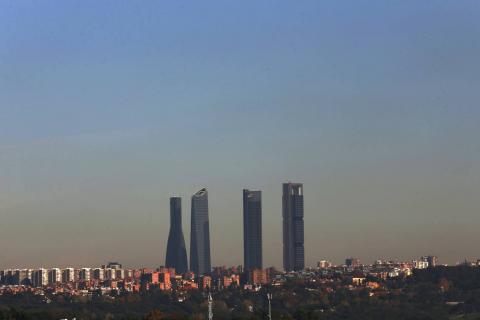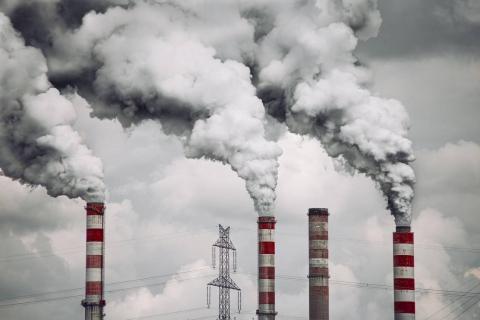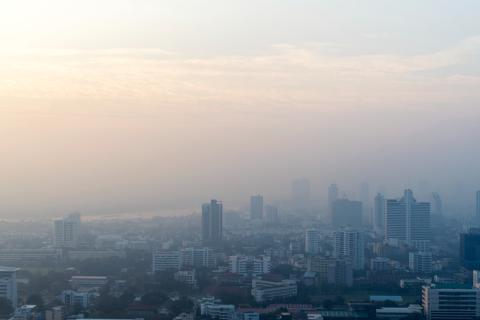Reactions: European Parliament gives green light to new air quality regulation with stricter targets
Following the agreement reached a few months ago between the European Parliament and Council, in today’s plenary session the European Parliament has approved a provisional political agreement with EU countries that includes new requirements to improve air quality by 2030. The agreement sets stricter targets and limits for several pollutants that have a serious impact on health, including particulate matter (PM2.5, PM10), NO2 (nitrogen dioxide) and SO2 (sulfur dioxide). Before being published in the Official Journal of the European Union, the law now must be adopted by the Council. EU countries will have two years to implement the new standards

Mark Nieuwenhuijsen - normativa aire Parlamento EN
Mark Nieuwenhuijsen
Director of the Urban Planning, Environment and Health Initiative, and head of ISGlobal's Air Pollution and Urban Environment programme
The Parliament's vote is another important step towards reducing the large health burden associated with air pollution in Europe. Air pollution still claims too many lives and causes too many diseases such as strokes, heart attacks, asthma, cancer and dementia, to name a few. It is extremely important to start acting now to comply with the new EU guidelines, for example by reducing the use of fossil fuels and increasing the use of clean and renewable energy sources, introducing low-emission zones and new urban models, such as Barcelona's superblocks.
London's low-traffic neighborhoods, Paris' 15-minute city and Freiburg's car-free neighborhoods encourage public and active transport, and improve housing insulation, agricultural manure management and fertilizer use. This generation has a unique opportunity to improve public health.
Vanessa López - normativa aire EN
Vanessa López
Head of Salud por Derecho
The approval of the regulation is a victory for civil society, which has been demanding this reform for years. It is a big step towards improving health across Europe, saving lives and bringing us closer to scientific evidence. With stricter limits, we will avoid hundreds of thousands of premature deaths each year. Also, greater access to information is essential to raise awareness of the impact pollution has on our health. Today we start the journey towards a pollution-free Europe in 2050, one cleaner and safer for future generations and our own.
Susana Borràs - normativa aire Parlamento EN
Susana Borràs Pentinat
Associate Professor of Public International Law and International Relations at Rovira i Virgili University, coordinator of the Master's Degree in Environmental Law and researcher at the Tarragona Centre for Environmental Law Studies (CEDAT)
Air pollution in Europe, according to the European Environment Agency, remains the greatest health risk. It exposes more than 90% of the urban population to very harmful levels of air pollution, which is above the recommendations of the World Health Organization (2021) and leaves a balance of 300,000 deaths per year.
Today, the European Parliament has approved the proposal to review the European regulatory framework by merging the two current air quality directives (2004/107/EC and 2008/50/EC), and by responding, not only to the urgency of setting stricter thresholds for pollution levels by 2030 and achieving zero pollution by 2050, but also to the need to hold the main air pollution emitters accountable.
The most significant aspects of this new regulations are: more clarity on the access to justice, the periodic review of air quality standards according to scientific data, the reparation of damages, the efficacy of the penalties imposed, the improvement of public information on air quality, as well as, the support for local authorities in achieving cleaner air by strengthening air quality plans, modelling and monitoring.
The law also recognizes the rights of people affected by air pollution, like the right to be represented by non-governmental organizations in class actions for damages, and the right to compensation in the event of EU air quality standards breaches.
However, there are still some controversial aspects, such as the horizon for achieving the air quality and reduction goals being too distant, and the possibility for the States to request a 10-year extension if they can’t reach the reduction targets due to specific climatic and orographic conditions.
In any case, it is a very important step forward to ensure a safer, healthier and cleaner environment for all the European citizens



